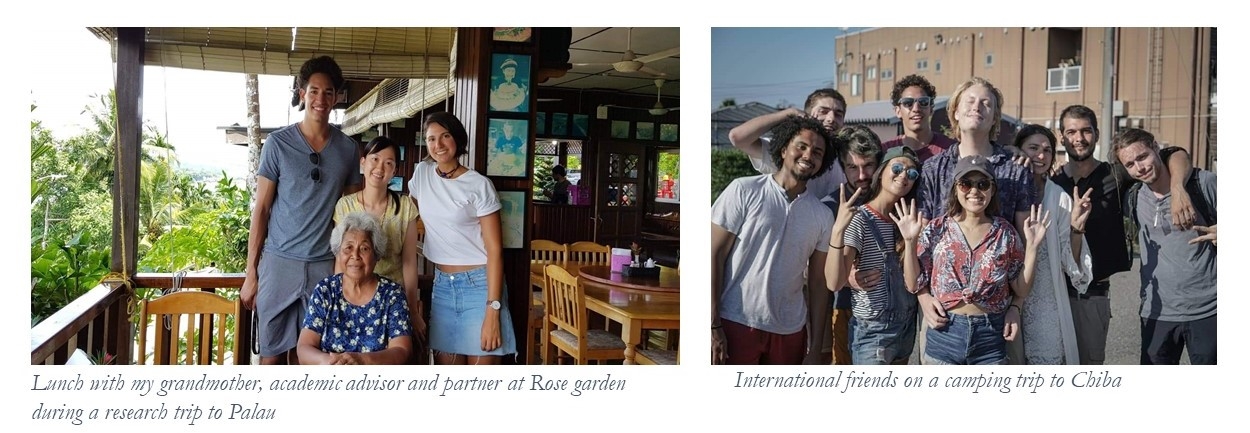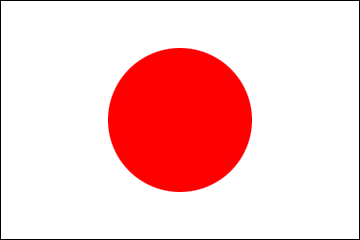My Experience in Japan as Japanese government scholarship student (By: Mr. David Ramarui Mason)
2020/6/9
David Ramarui Mason
Scholarship recipient in April 2017-March 2020
Post Graduate, International Research Student
There are tons of different possibilities for graduate school coming from Palau. If you don’t want to go to school in the US, there are scholarships to New Zealand, Australia, Taiwan and also Japan. Japan’s monbukagakusho scholarship (MEXT) not only pays your tuition it also pays your living expenses while you study. Having just used this scholarship to earn my Master of Engineering in Urban Planning from Tokyo Daigaku (The University of Tokyo), I’d like to talk about my experience to help you decide if you want to study in Japan.
Your biggest question may be, “How big is the MEXT stipend?” which is a good thing to know before moving to a foreign country by yourself. As a master’s student, I received 147,000 yen every month (between $1,300-1,400). I lived in Tokyo (probably the most expensive place in Japan). At first it didn’t seem like enough, but after a while I figured out where to save my money. Living in Japan, even Tokyo, can be affordable when you know the best places to shop, eat and have fun. Students from all over the world want to go to Japan, so you can meet friends from all over the world. I met some of my best friends (and mother of my child) in the university dorm. We'd take camping trips to beaches and islands when we weren’t finding a new izakaya (bar) around Tokyo.
Living and travelling in Japan, I found some of the best food I’d ever tasted and enjoyed some really great times with friends and strangers alike. Japan’s landscape, from the urban jungle to the mountains and beaches, is truly beautiful. The culture is also fascinating and made my stay in Japan even more fulfilling. While my program was in English, I took Japanese language classes to make life in Japan easier, and because I thought it would help me find work back in Palau. After all there are many Japanese companies and projects in Palau, and Japanese people always appreciate when others speak Japanese. I’d encourage you to study the language if you study in Japan, as well.
While enjoying life in Japan is important, as you’ll be there at least two years, your education is of course the most important. A degree is an investment of time and effort, and you want to make sure you are getting the best education possible. I can only speak of my time at Tokyo University, but I believe Japan’s universities are all mostly focused on research. This means that while you will take classes you also need to make your own research from which you write your thesis. My graduation requirements included 16 research credits (4 per semester) and 14 course credits (spread out as you like). I started my research right when I entered the university and worked closely with my advisor to improve and advance my research
topic.
My professor and I conducted research in Palau which was advantageous for several reasons. First, my flights back to Palau were paid for by grant money because I was doing research. I flew back to Palau four times in my 2.5 years in Japan. I was also able to use my networks in Palau for my research, which was a huge help when I needed data. Lastly, I hope that my research may be useful to Palau and any work that I will do in Palau, in the future.
Any opportunity is what you make of it. Studying in Japan not only offers a great education, but also a great adventure. I made unforgettable memories with lifelong friends, and with the help of an amazing advisor, I conducted research that I am proud of and earned an impressive degree.

Scholarship recipient in April 2017-March 2020
Post Graduate, International Research Student
There are tons of different possibilities for graduate school coming from Palau. If you don’t want to go to school in the US, there are scholarships to New Zealand, Australia, Taiwan and also Japan. Japan’s monbukagakusho scholarship (MEXT) not only pays your tuition it also pays your living expenses while you study. Having just used this scholarship to earn my Master of Engineering in Urban Planning from Tokyo Daigaku (The University of Tokyo), I’d like to talk about my experience to help you decide if you want to study in Japan.
Your biggest question may be, “How big is the MEXT stipend?” which is a good thing to know before moving to a foreign country by yourself. As a master’s student, I received 147,000 yen every month (between $1,300-1,400). I lived in Tokyo (probably the most expensive place in Japan). At first it didn’t seem like enough, but after a while I figured out where to save my money. Living in Japan, even Tokyo, can be affordable when you know the best places to shop, eat and have fun. Students from all over the world want to go to Japan, so you can meet friends from all over the world. I met some of my best friends (and mother of my child) in the university dorm. We'd take camping trips to beaches and islands when we weren’t finding a new izakaya (bar) around Tokyo.
Living and travelling in Japan, I found some of the best food I’d ever tasted and enjoyed some really great times with friends and strangers alike. Japan’s landscape, from the urban jungle to the mountains and beaches, is truly beautiful. The culture is also fascinating and made my stay in Japan even more fulfilling. While my program was in English, I took Japanese language classes to make life in Japan easier, and because I thought it would help me find work back in Palau. After all there are many Japanese companies and projects in Palau, and Japanese people always appreciate when others speak Japanese. I’d encourage you to study the language if you study in Japan, as well.
While enjoying life in Japan is important, as you’ll be there at least two years, your education is of course the most important. A degree is an investment of time and effort, and you want to make sure you are getting the best education possible. I can only speak of my time at Tokyo University, but I believe Japan’s universities are all mostly focused on research. This means that while you will take classes you also need to make your own research from which you write your thesis. My graduation requirements included 16 research credits (4 per semester) and 14 course credits (spread out as you like). I started my research right when I entered the university and worked closely with my advisor to improve and advance my research
topic.
My professor and I conducted research in Palau which was advantageous for several reasons. First, my flights back to Palau were paid for by grant money because I was doing research. I flew back to Palau four times in my 2.5 years in Japan. I was also able to use my networks in Palau for my research, which was a huge help when I needed data. Lastly, I hope that my research may be useful to Palau and any work that I will do in Palau, in the future.
Any opportunity is what you make of it. Studying in Japan not only offers a great education, but also a great adventure. I made unforgettable memories with lifelong friends, and with the help of an amazing advisor, I conducted research that I am proud of and earned an impressive degree.

